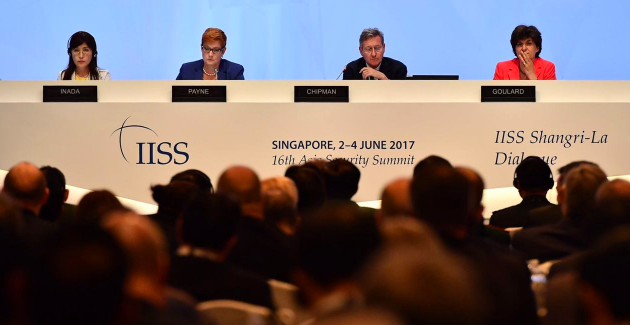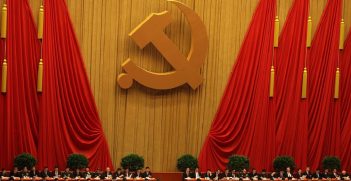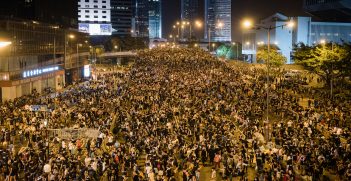How to Save the Shangri-La Dialogue

It was a sign of the Shangri-La Dialogue’s declining relevance when China sent a low-level delegation and India no delegation at all to this year’s talkfest. To ensure its future standing, this important meeting needs to shift its focus to achieving concrete security cooperation outcomes.
The Shangri-La Dialogue (SLD), one of the highest-level regional security meetings, attracts much media attention each year. However, the relevance of the SLD to regional security is under serious challenge.
The SLD has become an occasion to showcase different, yet clichéd, official lines for regional actors, rather than a place for real dialogue. While US Secretary of Defense James Mattis tried to ease concerns about the US commitment to the region, China reiterated its idea of building a ‘community of common destiny’ and cooperative security. However, neither the United States nor China offered any substantially new ideas on how to address various security challenges in the region, such as the rising threat of terrorism or the looming crisis on the Korean Peninsula.
It is no surprise that Australian, Japanese and US delegates openly criticised China’s aggressive behaviour in the South China Sea. However, Australian Prime Minister Malcolm Turnbull’s call for respecting a rules-based order fell on deaf ears. No one knows what the so-called ‘rules’ are or will be in the future because the United States, the builder of the liberal order after World War II, has started to renege on its commitments, first to the Trans-Pacific Partnership and recently to the Paris climate accord.
The Southeast Asian countries have seemed to stay cool, and the South China Sea (SCS) situation has improved dramatically since last year. The negotiation between China and ASEAN states on the long-awaited Code of Conduct (COC) is gradually progressing. The SCS no longer dominates the headlines for the capitals in Southeast Asia, although the US Navy’s high-profile freedom of navigation operation in the SCS just 10 days before the SLD reminded the region of the unsettled disputes.
In general, security dialogues have dual functions for regional security. One is to alleviate suspicions among states; the other is to foster practical cooperation. This year China did not send the same level of military officials to the SLD as before, citing “work arrangements” as the official reason. One unspoken reason may be the limited utility of the SLD for China following the reduced tensions in the SCS disputes between China and multiple ASEAN states.
In contrast, the US sent a high-level delegation led by the secretary of defense because the United States needs the SLD to demonstrate its commitment to the region. There is no denying that Trump’s erratic leadership style has shaken regional allies’ confidence in the United States. As expected, Mattis used China and the SCS as a foil to justify the American role in the region. This approach is not necessarily helpful and could further erode mutual trust among states in the region, which is needed for security cooperation.
To retain its relevance, the SLD will need to reform its agenda-setting to address practical issues. The SLD should become a forum for states to find common ground for cooperation, rather than only a place to present and defend their differences. For example, it is not difficult for regional actors to find common ground on the Korean nuclear crisis. However, merely pressing China to influence North Korea might not be the best strategy in such a multilateral setting. Instead, the SLD should pay more attention to fostering coordinated regional responses to North Korea and encouraging China and the United States to work together in a regional setting to address the North Korean problem. Unfortunately, the current tone of the SLD over North Korea seems mainly to point the finger at China.
Another pressing issue is the rising threat of terrorism in Southeast Asia, especially in the Philippines. At the SLD, all states called for stronger cooperation in the war on terror, but no substantial plan has been developed. One of the reasons for this empty promise is the impractical and ambitious arrangements of the SLD, which aims to cover all security challenges in the region. If the SLD can adopt a special focus for each year—for example, terrorism for this year—states can better prepare and develop concrete proposals for cooperation.
In the words of Uncle Ben, China and other major powers should understand that “with great power comes great responsibility”. They should not just attend but actively participate in the SLD. Moreover, they should utilise the multilateral setting opportunity to contribute their ideas and solutions for coping with complex security challenges in the region, not just to defend themselves or criticise others.
Overall, the SLD needs to consider reforming its agenda in order to keep its relevance. In the future, better outcomes will be achieved if the SLD can focus on identifying common threats, avoiding escalating differences and orienting towards practical cooperation. This year, China downgraded its delegation and the Indian defence minister cancelled his trip. If no change happens, even the US may not have the incentive to send a high-level delegation next year. Sure, states will still send delegations to the SLD, because attending the SLD is also important for its own sake, but the SLD will be in danger of becoming just another talking shop.
Kai He is professor of international relations at the Griffith Asia Institute and Centre for Governance and Public Policy, Griffith University, Australia.
This article is published under a Creative Commons Licence and may be republished with attribution.





